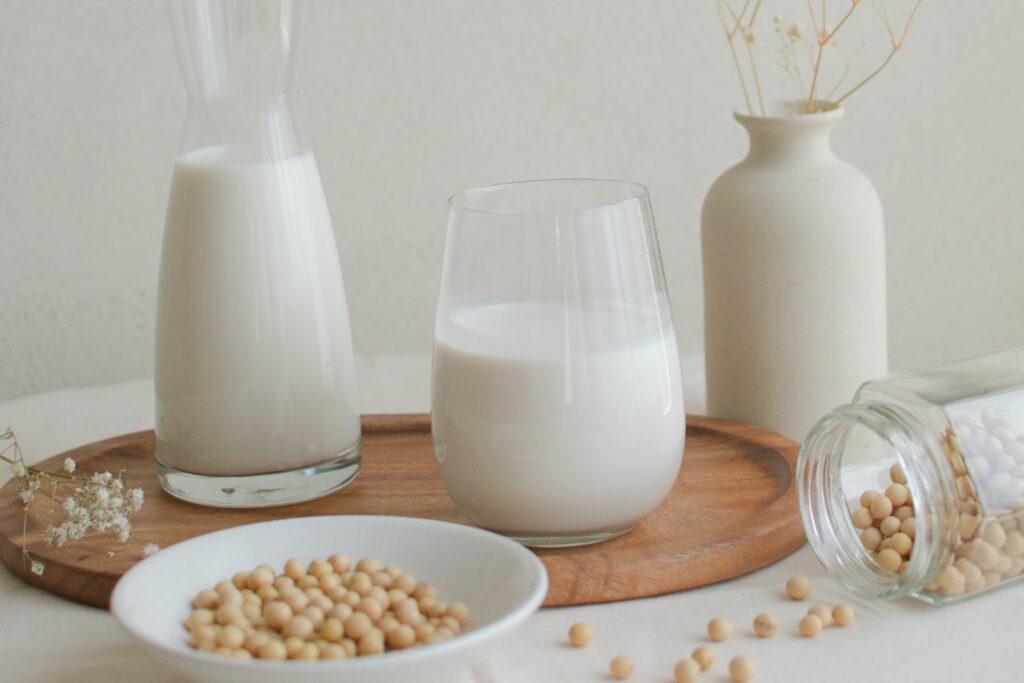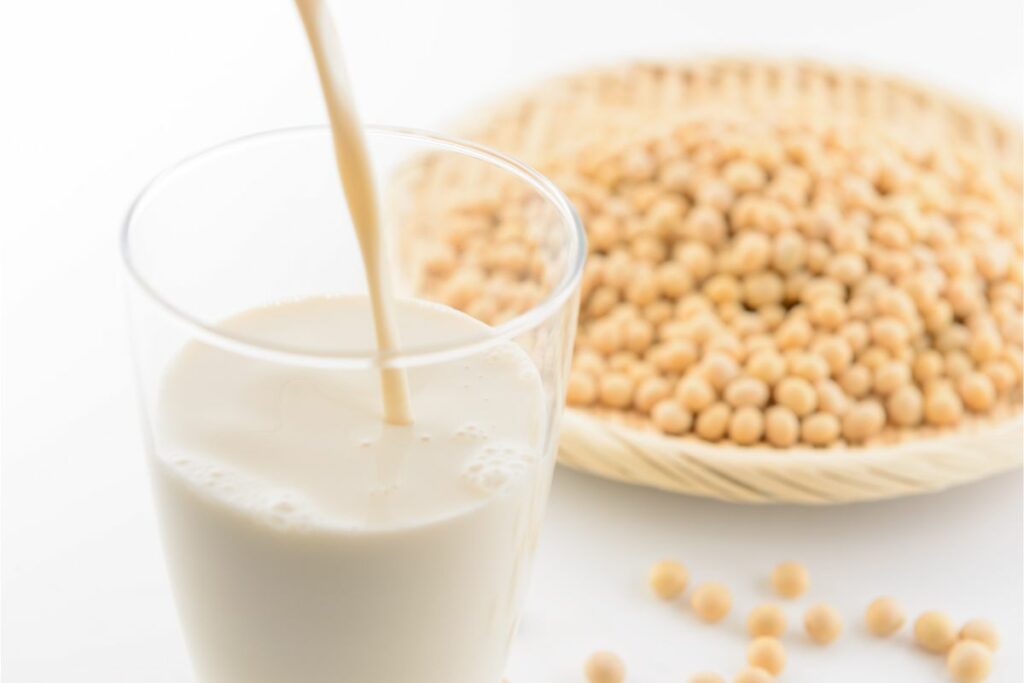In modern times, there are more options than ever for those with specific dietary needs. Whether it is veganism, those with lactose intolerance, or any number of other dietary restrictions, there is something for everyone to try and enjoy.

One example is cow’s milk, a product that has numerous alternatives – with the most common being soy milk, a common dairy alternative that is widely consumed and enjoyed. But this begs the question: what exactly is soy milk, and what does it taste like?
What Is Soy Milk?
Soy milk is a dairy substitute that is made using a whitish liquid produced from boiling ground soya beans. This creates an emulsion of proteins, which are then combined with natural oils and water to produce soy milk.
What Does Soy Milk Taste Like?
Generally speaking, soy milk has a mild and creamy flavor not too dissimilar from natural cow’s milk. Of course, there are many different soy milk brands, each of which has distinctly different takes on the process.
As such, it is not uncommon for some soy milk brands to taste sweeter than others, or indeed for there to be additives and flavors introduced into the mix.
This is because soy milk can taste ‘nutty’, something that not everyone is fond of, meaning that the need for variations became apparent.
As a rule though, those looking for a similar taste to cow’s milk would do well to find a better alternative than soy milk.
Is Soy Milk Healthy?
Generally speaking, soy milk is considered to be a safe and healthy alternative to dairy products, and the only time where it really becomes truly unhealthy is when additional sugars and sweetening products are added to the recipe.
These sugars can obviously increase the risk of weight gain, and exacerbate other chronic conditions like type 2 diabetes.
Does Soy Milk Have Health Benefits?
Of course, there are several health benefits that make soy milk a popular choice for many people.
Rich In Protein
As a legume, soy is rich in protein – something that is beneficial for anyone’s bodily maintenance and function.
Protein is the fuel our bodies need to function properly, and to keep all the various processes ticking over nicely, and as such is highly important to any balanced diet.
Soy protein has also been shown to lower cholesterol, which can of course be beneficial to those who suffer in that area – or who have similar health conditions that might be exacerbated by high cholesterol.
Soy milk also has 9 essential amino acids, making it much more beneficial to the body than other notable milk substitutes.
Calcium & Iron Content
As with cow’s milk, soy milk is also a great source of calcium and iron – elements that our bodies need to reinforce and repair our bones, bolster our blood, and maintain good general health.
However, for this you will need soy milk that has been fortified – and if this is the case then one cup of soy milk contains around 30% of your recommended daily calcium intake.
Contains Riboflavin & Vitamin B12
Soy milk is also rich in riboflavin and vitamin B12, both of which are vital for optimum bodily performance and function.
Vitamin B12 assists your body in producing DNA, aids in red blood cell function, and helps encourage a healthy nervous system.
Riboflavins on the other hand help your cells produce energy, and help to shield your DNA from natural wear and tear.
What Other Benefits Are There?

There are also some non-health related benefits that are worth noting.
Refrigeration Optional
Unlike cow’s milk, soy milk doesn’t always need to be refrigerated. This might sound like a strange benefit, but it does mean that it is good for transporting, doesn’t take up space in the fridge, and has more versatility.
Vegan Friendly
Soy milk is also 100% plant based, and as such is vegan friendly. However, vegans should always be careful not to purchase sweetened variants, as these can potentially be non-vegan due to the sugars used within.
Are There Downsides?
Some potential downsides of soy milk include soy allergies, the added sugar therein, and inconsistencies with calcium content.
Final Thoughts
And there we have it, everything you need to know about soy milk, where it comes from, and what it actually tastes like.
It’s true that in modern times there have never been so many dietary options – ensuring those with more specific or restrictive diets can still enjoy all of the wonders of the culinary world.
So if you are a vegan, or you otherwise cannot consume dairy, then why not give soy milk a try? Something tells me you won’t be disappointed!
- How To Reheat A Cheesesteak - November 5, 2023
- What Are Three Must Have Kitchen Knives? - September 22, 2023
- How To Protect Edges Of Pie Crust - June 15, 2023








